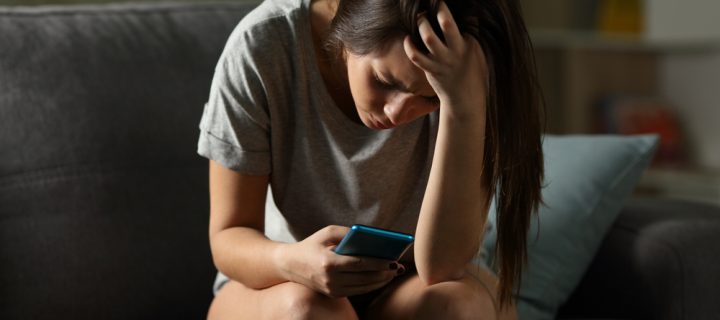People who went on digital platforms for multiple hours a day experienced more depression.
Social media is a huge, and growing phenomenon. Statista.com estimates that worldwide in 2019, people with access to it were on digital platforms for about 144 minutes each day. People living in the Philippines actually stayed on the longest, averaging just under 4 hours of daily use. Americans were on for about two hours each day.
While many of us take the internet for granted, it’s still a fact that most of the world hasn’t yet accessed it. Not quite half of the globe uses social media. And in places like Eastern and Middle Africa, less than 10% of people are on it. So, we live in changing times. While much of the world may not yet know what the logos of companies like Facebook really look like however, one thing is for certain: social media is addictive. But is it good for us?
Too Much of a Good Thing
There are obvious bonuses to being online. Social media can certainly enhance your life. It can increase your social connections, and help promote your interests, activities, and causes. It can also sell your products and services and keep you up-to-date on just about anything you seek.
Researchers from the University of Arkansas have a warning for us all, however. Everything in moderation. A national study done in the US authored by Dr. Brian Primack, who is dean of the College of Education and Health Professions at the University of Arkansas, discovered bad news. It was found that young adults who spent increasing time on social media were much more likely to develop depression within just six months.
The study was specific. It was found that people between the ages of 18 and 30 who were on social media for over 300 minutes, (or 5 hours), each day were almost three times more likely to become depressed.
“Most prior work in this area has left us with the chicken-and-egg question,” said Dr. Primack, the study’s lead author. “We know from other large studies that depression and social media use tend to go together, but it’s been hard to figure out which came first.”
Critical Moments in Life
Primack’s study found that people who were on social media a lot at the outset of the research experienced higher rates of depression in general. Being depressed at the outset of the study, however, did not cause people to spend more time online.
Why do researchers feel high-users go downhill? Jaime Sidani, an assistant professor of medicine at the University of Pittsburgh co-authored the study, and had this to say.
“Social media is often curated to emphasize positive portrayals. This can be especially difficult for young adults who are at critical junctures in life related to identity development and feel that they can’t measure up to the impossible ideals they are exposed to.”
Primark warned that, during the pandemic, it can be especially important to reflect on what social media experiences truly make your life better, and which do not. Be on the lookout for those that make you feel worse. If interacting online leaves you “feeling empty”, it’s probably time to do something else.
Rising Rates
Unfortunately, the vast majority of people in the US have been using social media much more during the pandemic statistics show. And this could be taking its toll. Pandemic stress is real. By adding in more negative feelings on top of it, critical situations can arise.
Centers for Disease Control and Prevention (CDC) reports that the mental health of Americans is suffering. Rates of depression are way up.
Need a break? Check out these resources from Johns Hopkins Medicine and Unicef, as well as ideas on what to do with kids during the pandemic from Forbes.com, Look to Vice News for ideas for adults.
If you are feeling depressed or anxious, talk with your doctor. Reach out for help online here.
photo credits: Antonio Guillem/Shutterstock.com












